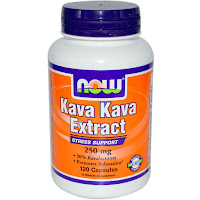"I can’t manage without homeopathy. In fact, I never go anywhere without homeopathic remedies. I often make use of them" - Paul McCartney
"The introduction of homeopathy forced the old school doctor to stir around and learn something of a rational nature about his business. You may honestly feel grateful that homeopathy survived the attempts of allopaths to destroy it." - Mark Twain
"The fruit will be good food, and the leaves will be used for healing" - Ezekiel 47:12
"Let your food be your medicine and your medicine be your food" - Hippocrates (Father of Medicine)
____________________________________________
In the early 20th century, a British homeopath and physician named Dr. Edward Bach created Rescue Remedy and other "Bach Flower Essences". Bach believed that plants had strong emotional healing properties, and that those properties could be transferred to water - similar to other homeopathic methods. To obtain his remedies, Dr. Bach would simply collect and bottle dew that was resting on different flowers.
Dr. Oz Recommended
"Does it work? I doubt we could prove it in a clinical trial, but not everything that’s measured is important, and not everything that’s important can be measured. I’m convinced it does. I squirt it on my own tongue — and, when they’re rowdy, my kids’" (Link).
Recent Study
"A just published scientific study conducted by researchers at the University of Miami School of Nursing in conjunction with The Sirkin Creative Living Center (SCLC) has found that Rescue Remedy®, an all-natural remedy created from flower essences, is an effective over-the-counter stress reliever with a comparable effect to traditional pharmaceutical drugs yet without any of the known adverse side effects, including addiction."(Link 1) (Link 2)
Popularity of Flower Remedies
The popularity of Bach Flower Essences continues to rise for people as well as for pets. One only has to go as far as Amazon to read the hundreds of positive reviews that Rescue Remedy is receiving (link). Celebrities such as Jennifer Aniston, Liz Hurley, Victoria Beckham, Cate Blanchett, Daryl Hannah, Salma Hayek and Ruby Wax have also claimed to use Bach Flower Essences (link). On a bigger scale, homeopathic medicine as a whole is becoming more popular. In India, for example, an estimated 100 million people depend on homeopathy as their main form of medicine (link). In England, 42 percent of physicians have referred patients to homeopathic doctors (link).
But can flowers really help heal emotional problems?
It is no secret that a gift of flowers can help brighten someones day or even make up for some hurtful words. But do flowers contain properties that can truly help heal a person's emotions?
One recent study has found that simply looking at natural scenery can decrease recovery time: "[hospital] patients who could see trees from their hospital beds needed fewer painkillers and had shorter hospital stays than those who looked out on brick walls" (link).
Another study posted some amazing results. "Patients in hospital rooms with plants and flowers had significantly fewer intakes of postoperative analgesics, more positive physiological responses evidenced by lower systolic blood pressure and heart rate, lower ratings of pain, anxiety, and fatigue, and more positive feelings and higher satisfaction about their rooms when compared with patients in the control group." (link).
But can those healing properties be transferred to water?
Dr. Bach believed that the dew found on flower petals in sunlight, while retaining virtually no particles of the flower, retained some of its properties. In the medicine of homeopathy, this is known as "water memory". While homeopathy is very popular throughout the world, the idea of water memory is often labeled as false science by American practitioners and pharmaceutical companies. That being said, there has been some science to suggest that water indeed does have some sort of "memory".
In 1988, the highly prestigious scientific journal Nature published what was to become a controversial article stating, in effect, that water has some sort of "memory", or longer-lasting reflective properties. The article was written by a well respected French immunologist named Jacques Benveniste. In the article Benveniste described the action of very high dilutions of anti IgE antibody on the degranulation of human basophilis, findings which seemed to support the concept of homeopathy (link).
Math or Music?
Is there any danger in taking Bach flower essences?
Many people argue that homeopathic medicines are ineffective and can actually cause harm by preventing people from researching other medical answers. They also point out that there have been very few studies to measure the effects of flower remedies.
Those in favor of homeopathy such as flower essences argue that the side effects of pharmaceutical drugs are often not worth the benefits that those drugs offer. They believe that alternative medicines are a complementary option to those searching for a more natural approach for healing.
For most of human history, fast foods and processed foods were nonexistent. Rather, hunters and gatherers went into the wild and a wide variety of berries, seeds, nuts, meats, fruits, vegetables and even edible flowers. By eating edible flowers, our ancestors were "taking flower essences" without realizing it. Whereas lab-created prescription medications such as Prozac, Ritalin and Xanax are still very new to humans, we can rest assured that edible flowers (and therefore flower essences) have been a relevant - and perhaps integral - part of human history.
Edible Flowers

















